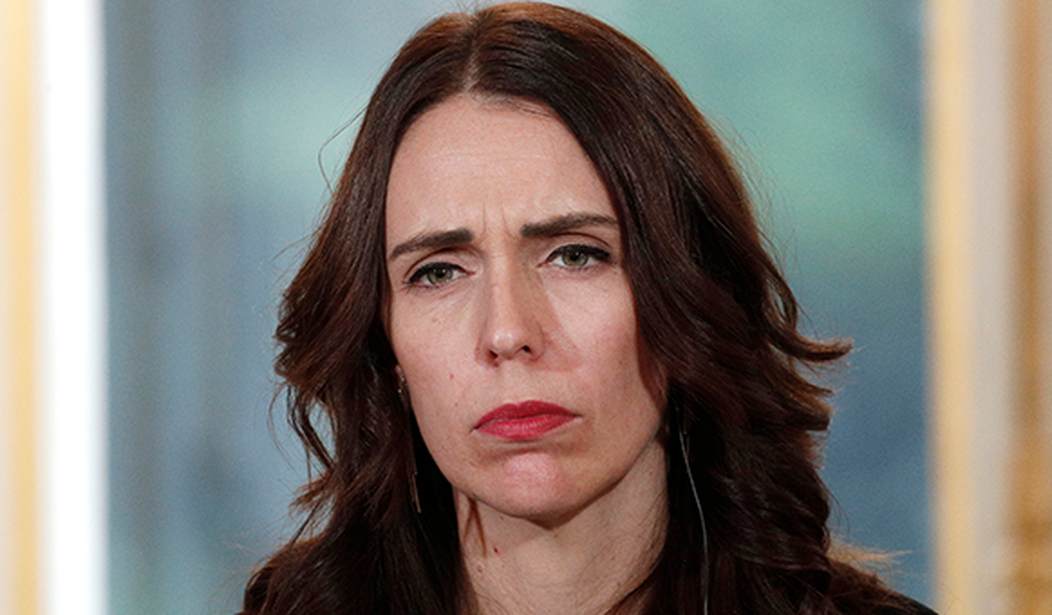New Zealanders sent former Prime Minister Jacinda Ardern and her successor, Chris Hipkins, a clear message in Saturday’s election: they are done with Labour Party rule.
Following the country's draconian pandemic response and the massive toll it took on the economy, the people gave a decisive win to the center-right National Party, which will lead a coalition with the smaller libertarian party, Act.
The election means New Zealand will be run by “the country’s most right-wing government in a generation,” The New York Times noted.
For many voters, Ms. Ardern and her successor, Chris Hipkins, failed to deliver on the Labour Party’s promise of transformational change. In the weeks leading up to the election, New Zealanders, buffeted by the currents of global inflation and its larger Asia Pacific neighbors’ economic woes, overwhelmingly cited cost of living as the primary concern driving their vote.
The coalition is a return to form for New Zealand, which since moving to a system of proportional representation in 1993 has had only one single-party government — the Labour government elected in 2020 under Ms. Ardern. But it is the first time National, which last governed alone in the early 1980s, has been in coalition with a more conservative partner.
With most of the vote counted, support for the Labour Party, which won 50 percent of the vote in 2020, buoyed by the country’s strong response to the coronavirus pandemic, has collapsed to 27 percent.
The National Party won 39 percent of the vote, up from 26 percent in 2020. Among the smaller parties, the Green Party took 11 percent of the vote, and Act won 9 percent. But those results could shift slightly after “special” votes were counted, including those of overseas New Zealanders. That could potentially force Act and National into coalition with New Zealand First, a longtime kingmaker that played a role in Ms. Ardern’s ascent, to push the right-wing coalition over the halfway mark. (NYT)
Recommended
New Zealand’s next prime minister, former businessman Christopher Luxon, vowed to “rebuild the economy and deliver tax relief.”
“Our government will deliver for every New Zealander,” he added.
Thank you New Zealand. Now let's go get our country back on track! pic.twitter.com/YgHxsL0U1G
— Christopher Luxon (@chrisluxonmp) October 14, 2023
Hipkins, who took over after Ardern’s abrupt resignation in January, told supporters he “gave it [his] all to turn the tide of history but alas, it was not enough.”
As CNN highlighted, this was the first post-pandemic election, which was a clear rejection of Ardern and Hipkins' party.
Overseas she became famous for being a leader unafraid to show empathy and compassion at a time when populist demagogues were coming to the fore in many other western democracies.
But back home her popularity ebbed amid a rising cost of living, housing shortages and economic anxiety. And she faced violent anti-lockdown protests in the capital Wellington, with threats made against her.
Ardern’s successor as Prime Minister, Chris Hipkins, inherited these issues which have since been compounded by a sluggish economy, an historically high inflation rate of 6% and an accounts deficit that has concerned ratings agencies.
It’s the first election in New Zealand following the end of strict coronavirus lockdown measures that have been a source of contention for many. The government’s “go hard and go early” approach to the pandemic saw New Zealand impose some of the world’s strictest border rules, separating families and shutting out almost all foreigners for almost two years.
It meant New Zealand suffered far fewer Covid infections and deaths compared to many countries, like the United States or United Kingdom. But many residents felt the government went too hard on its measures. (CNN)
Was it a good idea to arrest people for protesting and not wearing masks? New Zealand has the answer to Jacinda’s question. pic.twitter.com/KSkska1v7J
— Ian Miles Cheong (@stillgray) October 15, 2023

























Join the conversation as a VIP Member